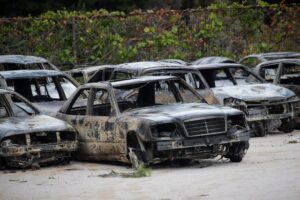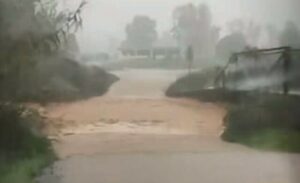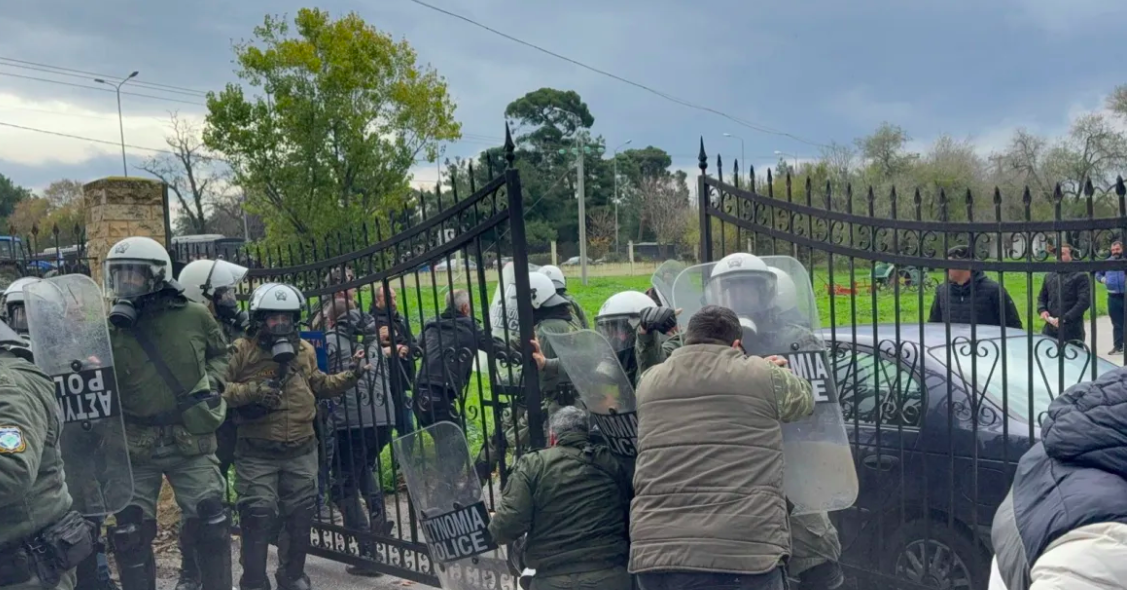With the apology of Yiannis Kapakis, then secretary general of Public Protection, the trial in the second degree in the case of the deadly Mati fire.
During his apology – directly but not explicitly – Mr. Kapakis took a swipe at the Fire Department, saying, among other things, that it was responsible for dealing with the fire and had knowledge of its progress.
“All the media were drawing information from the Fire Brigade. Text messages had been sent to accredited journalists by the Fire Department press office. They did two interviews around ten o’clock at night. If he felt it was appropriate he would have done another briefing. He could have given a door-to-door briefing. It is a decision that rests with the Fire Department. It is for them to decide whether to notify for removal or whether it would be better not to notify,” the accused said.
“This is the first time I’ve been confronted with the justice system. All this time I have chosen to remain silent out of respect for both the victims and justice. Now as an accused, I will speak about the general secretariat, the way it operated, and the responsibilities it had,” Kapakis said, beginning his apology, expressing his condolences to the victims’ relatives.
“He had 20 people with a horizontal staff structure. However, he had no staff force. Till then disaster management was handled by the army and fire brigade. Nowhere is there any provision for the secretary general’s authority in decentralised actions. Project actions and measures even for forest fires are provided by law. The law stipulates that municipalities and regions have specific responsibilities. I have no authority to restore their work. Actions are not exercised at central but at decentralized level as they know the specific local status and conditions to develop their action, “he said continuing Mr. Kapakis and referring to the day of the deadly fire and the non-evacuation of the area stressed:
“Even today we do not know what happened. Where these people left from, how they moved, and what would have happened if they had moved differently. We have no official report on that. The key question was there a critical time? From what I have read I have not concluded whether there was the necessary time or whether we would have been heading for chaos. The person giving the order to go must know that you have the necessary time to get out safely. Lately, there has been a trend overseas to give instructions to stay in homes in forest fires. In disaster management situations if there is no organized plan there is a risk of panic. Especially when there are crowds of people who have to move in hazardous conditions. Even today we don’t know if there was an organized evacuation possible that day. Six years later, we have no official answer to that (…)”.
“Unfortunately we did not have 112”
Elsewhere in his plea, Kapakis referred to “112”, an issue that has been the subject of much debate in the trial.
“On 20/7/2010 a contract was entered into between the information society and the OTE. In 2016 it was stopped because no connection with the police and fire brigade was provided. So the project was transferred to the 2016- 2020 funding. The project was very vital for informing the citizens,” he said.: “I have heaps of documents that I had exchanged to get the project completed. To complete it we moved to legislate so that the providers could deliver the project under corporate social responsibility instead of having new tenders, as the companies were saying, to buy cells, etc., which would have created additional costs. We have the most modern project, I have seen an equivalent in Europe. It has huge potential, we even have provisions for disabled people. They were able to call with a button in case of emergencies. I do not know what has been done now. But unfortunately, we didn’t have it that day.”
“I did everything possible”
Referring to the issue of unorganized evacuation of citizens, Kapakis noted that he did not decide on this issue. “I was not the deciding body, nor did I act in the field, nor can organized preventive removal be done from afar and through electronic means. It has to be decided locally and based on the expected behaviour of light. I believe I have done everything possible within my remit for this incident that has scarred me for life,”
he said.
President: What were the responsibilities of the secretary general?
Defendant: What we are essentially doing is through the statutes governing each agency, defining who where when, but we do not say how.
Kapakis further denied the charge that he did not timely and properly inform citizens before and after the fire, stating that both posters and notices had been placed.
Finally, he argued that he was not competent to know the danger of each fire. “Nowhere in the legislation does it provide for coordination by me. The responsibility of coordination of involved agencies belongs to the Fire Brigade. Nowhere in the world will you find risk assessment being done outside the field,” he said.
The trial will resume tomorrow.
Ask me anything
Explore related questions





